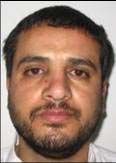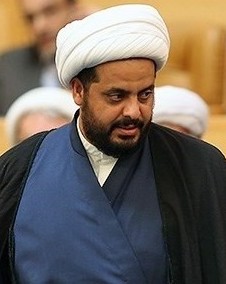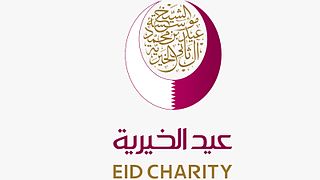Yousser Company for Finance and Investment is a bank that was part of the first Canadian lawsuit against a bank over terrorist funding.
The Islamic Resistance Support Association is a charity used to raise funds for Hezbollah and pay for the services it offers in Lebanon.
Hezbollah has a Foreign Relations Unit and maintains relations with a number of foreign countries and entities. These are particularly Shia states, but also Sunni groups like those affiliated with the Palestinian cause; and the group is also suggested to have operations outside the Middle East in places such as Latin America and North Korea.

The al-Aqsa Foundation is an entity established in 1991 as a non-profit organisation that some Western governments have said is linked to Hamas. In 2003 the U.S. Treasury Department designated the foundation as a "Specially Designated Global Terrorist (SDGT) entity."
The funding of Hezbollah comes from Lebanese business groups, private persons, businessmen, the Lebanese diaspora involved in African diamond exploration, other Islamic groups and countries, and the taxes paid by the Shia Lebanese. Hezbollah says that the main source of its income comes from its own investment portfolios and donations by Muslims.

Ali Musa Daqduq was a senior Hezbollah leader and senior advisor to Asa'ib Ahl al-Haq leader Qais al-Khazali. He played an instrumental role in establishing Iraq’s Iran-backed Shia militias following the toppling of Saddam Hussein's regime in 2003.

Qais Hadi Sayed Hasan al-Khazali is an Iraqi politician and militant leader who is the founder and Secretary-General of the Asa'ib Ahl al-Haq, an Iraqi Shi'ite paramilitary organization and political party. He is best known as the founder and leader of the Iran-backed Special Groups in Iraq from June 2006 until his capture by British forces in March 2007. As head of the Special Groups, Khazali directed arms shipment, formation of squads to participate in fighting, and insurgent operations, most notably the 20 January 2007 attack on American forces in Karbala. A former follower of Muqtada al-Sadr, he was expelled from the Mahdi Army in 2004 for giving "unauthorized orders" and founded his own group: Asa'ib Ahl al-Haq (AAH) also known as the "Khazali Network" that was later designated as a terrorist group by the U.S. Department of State. During his incarceration, Akram al-Kaabi became acting commander of the organization until his release in January 2010.
A Specially Designated Global Terrorist (SDGT) is a person or entity that has been designated as such by the United States Department of State or the U.S. Department of the Treasury. An SDGT designation is made under authority of U.S. Executive Order 13224 of September 23, 2001, as amended by Executive Order 13268 of July 2, 2002, and Executive Order 13284 of January 23, 2003, and Title 31, Parts 595, 596, and 597 of the U.S. Code of Federal Regulations, among other U.S. laws and regulations. The main regulatory framework underlying the SDGT designation was established two weeks after the September 11 attacks in 2001 by U.S. President George W. Bush.

Hashem Safieddine was a Lebanese Shia cleric who served as the head of Hezbollah's Executive Council from 2001 until his assassination in 2024. A maternal cousin of Hassan Nasrallah, Safieddine was generally considered the "number two" in Hezbollah for many years. In 2017, he was declared a Specially Designated Global Terrorist by the United States and was also designated as a terrorist by several of the Arab Gulf states. Following Nasrallah's assassination on 27 September 2024, during the Israel–Hezbollah conflict, Safieddine was widely considered his likely successor. On 3 October 2024, Safieddine was targeted by an Israeli airstrike in Dahieh, south of Beirut. His death in the strike was confirmed later that month.
Following US President Barack Obama's address on the subject, a series of international conferences took place in order to build a formal coalition to destroy the Islamic State of Iraq and the Levant, which had taken over large portions of Syria and Iraq and had briefly invaded a small part of Lebanon.

The Master of Martyrs Battalion, better known as Kata'ib Sayyid al-Shuhada' and officially the 14th Brigade, is a radical Iraqi Shiite paramilitary group formed in 2013. Its stated mission is to protect "(Shia) shrines across the globe", preserve "Iraqi unity" and to "put an end to the sectarian conflict". KSS is funded, trained and equipped by IRGC's Quds Force and Hezbollah.
Qatar has been accused of allowing terror financiers to operate within its borders, which has been one of the justifications for the Qatar diplomatic crisis that started in 2017 and ended in 2021. In 2014, David S. Cohen, then United States Under Secretary of the Treasury for Terrorism and Financial Intelligence, accused Qatari authorities of allowing financiers who were on international blacklists to live freely in the country: "There are U.S.- and UN-designated terrorist financiers in Qatar that have not been acted against under Qatari law." Accusations come from a wide variety of sources including intelligence reports, government officials, and journalists.

Sheikh Eid Bin Mohammad Al Thani Charitable Association is a Qatari charitable organizations established in 1995 in Doha, Qatar. The organization was named after Sheikh Eid Ibn Mohammad ibn Thani ibn Jasim ibn Mohammad Al Thani (1922-1994).
Ibrahim Issa Hajji Muhammad al-Bakr is a Qatari Specially Designated Global Terrorist (SDGT) according to the U.S. Department of the Treasury. Al-Bakr also has a history of supporting al-Qaeda and the Taliban through the collection and transfer of funds. Al-Bakr’s fundraising efforts for extremist groups and associations with al-Qaeda operatives and facilitators have led the United Nations and U.S. Department of the Treasury to list al-Bakr as a facilitator of terrorism. Ibrahim al-Bakr’s current location is unknown.
Akram Abbas al-Ka'abi is an Iraqi militant leader who is the founder and Secretary-General of Harakat Hezbollah al-Nujaba (HHN) in Iraq. Kaabi is a U.S.-designated terrorist who is regarded as one of the main operatives of IRGC's Quds Force in Iraq. He has been an ardent supporter and promoter of Iranian influence in Iraq while being the most outspoken critic of American military presence as he seeks to compel U.S. forces to withdraw completely from Iraq.

Talal Hamiyah is a Lebanese militant leader. A senior military commander in Hezbollah since its founding in the early 1980s. He heads Hezbollah's External Security Organization (ESO), also known as Unit 910, which is responsible for planning and executing terrorist activities outside Lebanon. He is associated with terror attacks such as the 1994 AMIA bombing and 1996 Khobar Towers bombing. In 2017, the U.S. added Hamiyah to its Rewards for Justice Program, offering $7 million for information leading to his arrest. Since 2008 he is a senior member of Jihad Council.
Ali Youssef Charara is a Lebanese businessman and financier, best known for his involvement in the telecommunications sector and his financial ties to the militant group Hezbollah. Charara has been implicated in supporting Hezbollah through commercial ventures and has faced sanctions from multiple governments as a result.
Abdallah Safi-Al-Din was born in Southern Lebanon on July 8, 1960. He is a Lebanese figure serving as Hezbollah's representative in Teheran. He is the brother of Hashem Safi-Al-Din who led Hezbollah's executive council until he was targeted by an Israeli airstrike in Dahieh and died in 2024.
Mohamad Noureddine is a Lebanese individual with significant ties to Hezbollah, a designated terrorist organization by multiple countries. He was arrested in 2016 as part of a major crackdown on Hezbollah's financial operations in Europe. He has been involved in money laundering and facilitating financial transactions that support Hezbollah's global operations. Noureddine owned and operated Trade Point International S.A.R.L., a company that acted as a conduit for moving illicit funds across various networks in Lebanon and Iraq.
Ali Mohamed Kharroubi is a Lebanese national identified by the United States Department of the Treasury as a Specially Designated Narcotics Trafficker (SDNT) under the Foreign Narcotics Kingpin Designation Act.






